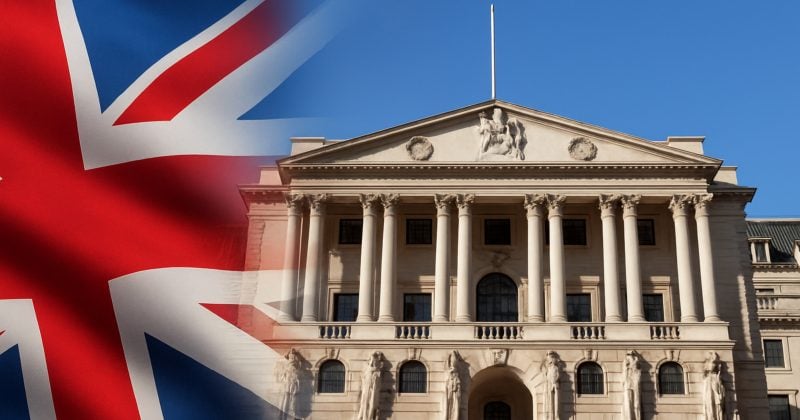
Bank of England weighs scrapping Britcoin plans as industry solutions reduce need for CBDC
Private sector payment innovation is prompting the central bank to reconsider the necessity of a digital pound for consumer use.
The Bank of England (BoE) is reassessing its plans for a digital pound, as officials question whether launching a new form of money is worth the effort, especially with the private sector rapidly advancing payment technologies.
The Bank of England has been exploring the idea of a digital pound, often dubbed a “Britcoin,” as a government-backed digital version of the British pound.
However, according to Bloomberg, officials have also been privately urging the banking industry to prioritize payment innovations that could achieve similar outcomes without the need to issue a retail CBDC.
The BoE isn’t abandoning its CBDC plans entirely. The bank aims to remain prepared to launch a digital pound if necessary, but may scale back the effort if private firms continue to advance electronic payment technologies that offer comparable benefits.
At a Parliamentary hearing on Tuesday, Bank of England Governor Andrew Bailey expressed doubt over the necessity of a digital pound. He indicated that if ongoing collaboration with commercial banks proves successful, it would be difficult to justify introducing a new form of money.
“I think that’s a sensible place to do it,” Bailey told the Treasury Committee. “If that’s a success, I question why we need to introduce a new form of money.”
The central bank and government will make a final decision after completing the current design phase.
This marks a shift from previous years, when Bank of England and Treasury officials considered a digital pound “likely” to be needed.
The change comes amid waning global momentum for state-backed digital currencies.
In the US, the Trump administration has intensified efforts to block the Federal Reserve from issuing a digital dollar. During “Crypto Week,” the House passed the Anti-CBDC Surveillance Act, a bill aimed at halting progress on an American CBDC.
South Korea’s central bank has also halted its digital currency pilot program.
In contrast, the European Central Bank continues to pursue a digital euro.
Recent BoE research indicates diminished benefits from launching a CBDC. Senior officials, including Deputy Governor Sarah Breeden and Treasury’s director general for financial services Gwyneth Nurse, have reduced their involvement in the CBDC Engagement Forum, sending lower-ranking staff instead.
The project has faced various challenges, including privacy concerns and fears about potential destabilizing effects if investors rush to state-backed digital currencies during crises.
Bailey has shown support for a wholesale CBDC for financial institutions while remaining skeptical about a retail version. He has, however, expressed concerns about foreign stablecoins potentially gaining popularity in the UK and undermining trust in traditional currencies.
